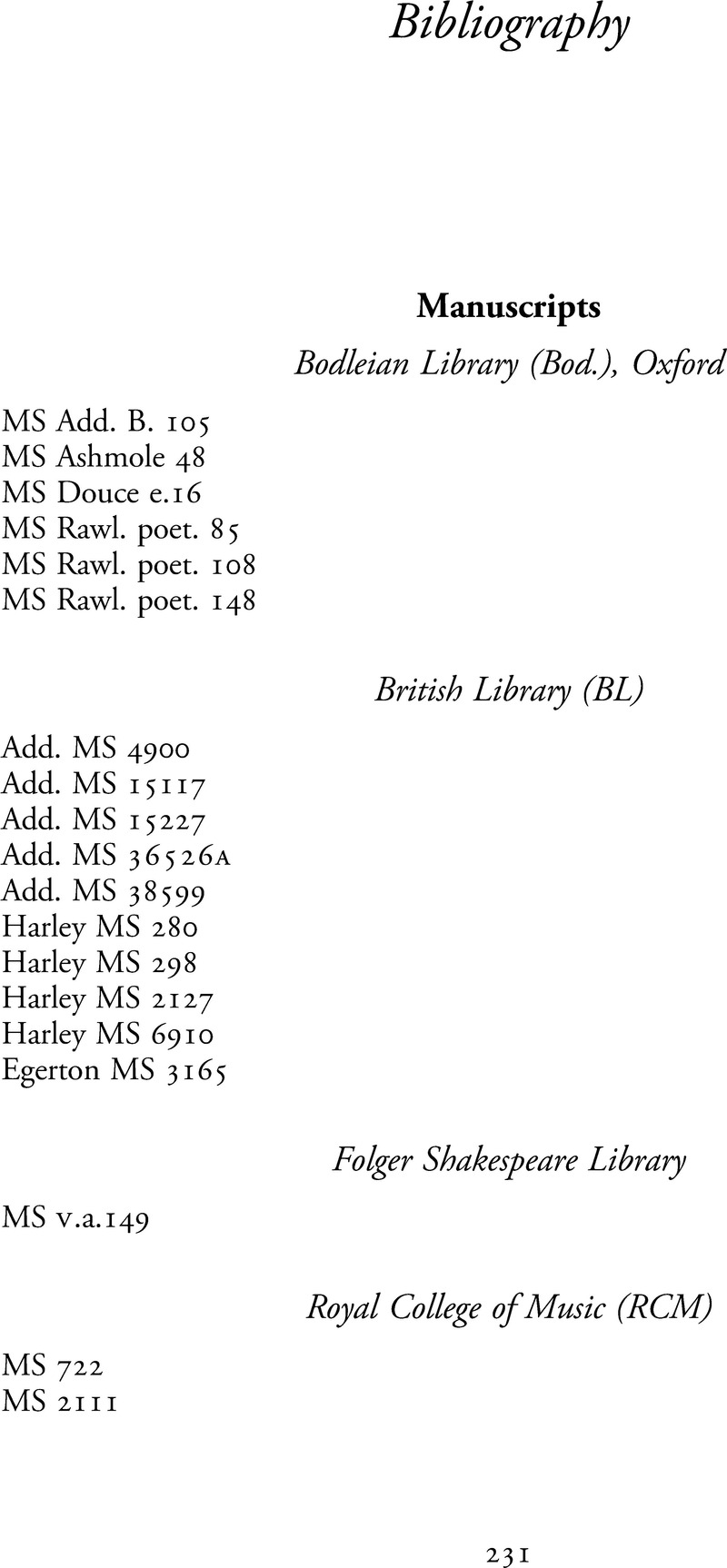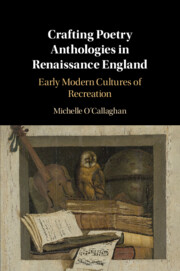Book contents
- Crafting Poetry Anthologies in Renaissance England
- Crafting Poetry Anthologies in Renaissance England
- Copyright page
- Contents
- Illustrations
- Acknowledgements
- Note on the text
- Introduction
- Chapter 1 Books in Process
- Chapter 2 Household Books
- Chapter 3 ‘To the Gentleman Reader’
- Chapter 4 ‘Impos’d designe’
- Chapter 5 A Poetical Rapsody
- Conclusion
- Bibliography
- Index
- References
Bibliography
Published online by Cambridge University Press: 23 December 2020
- Crafting Poetry Anthologies in Renaissance England
- Crafting Poetry Anthologies in Renaissance England
- Copyright page
- Contents
- Illustrations
- Acknowledgements
- Note on the text
- Introduction
- Chapter 1 Books in Process
- Chapter 2 Household Books
- Chapter 3 ‘To the Gentleman Reader’
- Chapter 4 ‘Impos’d designe’
- Chapter 5 A Poetical Rapsody
- Conclusion
- Bibliography
- Index
- References
Summary

- Type
- Chapter
- Information
- Crafting Poetry Anthologies in Renaissance EnglandEarly Modern Cultures of Recreation, pp. 231 - 243Publisher: Cambridge University PressPrint publication year: 2020

